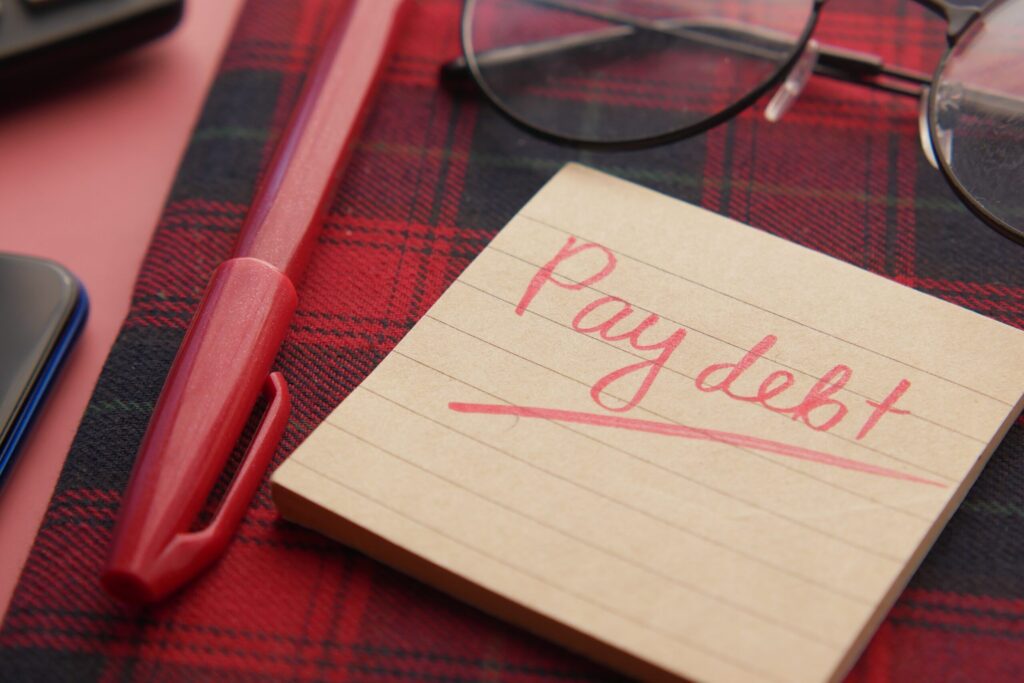Insolvency is a term that can confuse many Canadians. It is not uncommon to confuse insolvency with bankruptcy, but the two are very different. In summary, insolvency is the state of being unable to pay your debts on time, whereas bankruptcy is a legal form of debt relief. In this article, we explain the true meaning of insolvency, and explore how to know if you are insolvent and what to do if you are. We will also share more information on the differences between insolvency and bankruptcy. So, if you’re wondering what the meaning of insolvent is, we explain all you need to know.
Insolvent meaning – what is it?
If you are searching for ‘insolvent meaning’, you likely want clarity on the meaning of insolvency. Insolvency is when a debtor is unable to pay their debts because the amount of debt they owe is greater than the total value of their assets. Somebody who is insolvent is defined by the Bankruptcy and Insolvency Act as somebody who is not bankrupt, but who lives, works, or has property in Canada and owes at least $1,000. They are unable to pay their debts as they are owed, and have stopped paying their current bills and living expenses as those too are due. When valued, that person’s assets would also be unable to cover the payment of any owed living expenses and debts that are due.
What is the difference between insolvency and bankruptcy?
It is important to recognize that the meaning of bankrupt is not the same as insolvent, although they are often – confusingly – used interchangeably. Insolvency is the state that precedes bankruptcy. If you discover that you cannot pay your debts, you may choose to pursue bankruptcy. Insolvency is the financial state of being unable to pay debt to creditors when it is owed, whether you are a business or an individual. Common debt relief pathways for insolvency include bankruptcy or a consumer proposal. Bankruptcy, meanwhile, is a legal form of debt relief. It offers debtors a fresh financial start and offers protection from creditors.
How do I know if I’m insolvent?
Now that you know the meaning of insolvency, you may be wondering if you yourself are insolvent. There are a couple of simple tests you can take to determine whether or not you are insolvent. See how you match up with the following criteria:
- If your bills are due on the first day of the month, are you able to make the minimum payment on your debt? If not, this likely means you cannot meet your financial obligations. There are a few typical ways you can tell if you are insolvent because of your cash flow:
- Your debt increases every month, usually if you are using debt for your every day living costs
- You are using cash advances to pay off your credit card debt
- You are only making the minimum payments on your debts, which is having little impact on reducing the balance of your debt
- Your credit cards are maxed out
- You are considering taking out a payday loan just to keep your finances going
- Your after-tax income after all expenses is less than the total value of your debts
- Do you have assets that you could sell for cash? Does the value of these assets make up the amount you owe in debt if liquidated or sold? If so, you are not insolvent because you could sell your assets and pay off your debt with the cash.
If you are not insolvent but still struggling to pay your bills, it could be that you are struggling with your cash flow instead. Check out our tips on how to budget to make sure you are staying within your means financially. It is important to know the difference between debt problems and possible insolvency in order to know how best to gain debt relief for your unique circumstances. If you need support, reach out to one of our Licensed Insolvency Trustees at Spergel for advice and recommendations on your financial situation.
What should you do if you become insolvent?
You have options if you are insolvent, so first of all do not panic. Gaining debt relief will ultimately enable you to begin a fresh financial future. The first step is to confirm whether or not you are truly insolvent with help from a reputable Licensed Insolvency Trustee. They will work to understand whether or not you are able to pay your debts as they are owed, and whether the value of your debts are greater than the value of your assets. This is easier for some than others. If you are insolvent, they will work with you to determine the best form of debt relief for you too. The two most common forms of debt relief for insolvency are bankruptcy or a consumer proposal. In order to file both of these forms of debt relief, you must be insolvent.
Filing a consumer proposal
If you have a decent income, but are struggling to pay off overwhelming debt on your own or with refinancing, a consumer proposal is likely a great option for you. A consumer proposal is a legal form of debt settlement, supported by the Canadian government via the Bankruptcy and Insolvency Act. It is a form of debt relief that enables you to reduce your unsecured debt by up to 80%, making it a great option if you are insolvent. A Licensed Insolvency Trustee is required to file a consumer proposal. They will work with you to determine a reasonable monthly amount to repay your creditors, ensuring it is manageable and affordable for you. Most creditors will choose to accept the more favourable terms of a consumer proposal over a bankruptcy as they will likely receive more money. After the agreed period of repayment, any remaining debt will be cleared. The advantages of filing a consumer proposal include the ability to keep your assets and protection from creditors via a stay of proceedings. At Spergel, our experienced Licensed Insolvency Trustees have an acceptance rate of 99% on any consumer proposals we file.
Filing bankruptcy
Bankruptcy is an ideal form of debt relief if you are insolvent and have a lot of debt, especially with a high interest rate. Bankruptcy is the process of assigning any non-exempt assets you may have over to a Licensed Insolvency Trustee in exchange for the clearance of your debts. Once again, it is a legal process that must be administered by a reputable Licensed Insolvency Trustee. As soon as bankruptcy is filed, a stay of proceedings is issued to offer you protection from your creditors. Contrary to popular belief, if you file bankruptcy you are able to keep some essentials including a car or computer for work, with values dependent on your province of residence. Bankruptcy offers Canadians a fresh financial future, enabling them to move on with their lives. At Spergel, you will receive your very own Licensed Insolvency Trustee to walk you through each step of the process. You may wish to consider filing bankruptcy if you rely on credit for everyday expenses; you are paying off a credit card by using another, are considering taking out a payday loan, or are behind on payments.
If you are unsure of whether or not you are insolvent, book a free consultation with Spergel. The sooner you discuss your situation, the more debt relief options that will be open to you. It is the first step in dealing with your debt. Most people do not need to file bankruptcy, and our reputable Licensed Insolvency Trustees will help you to explore all your debt relief options and recommend the best pathway for you.



















